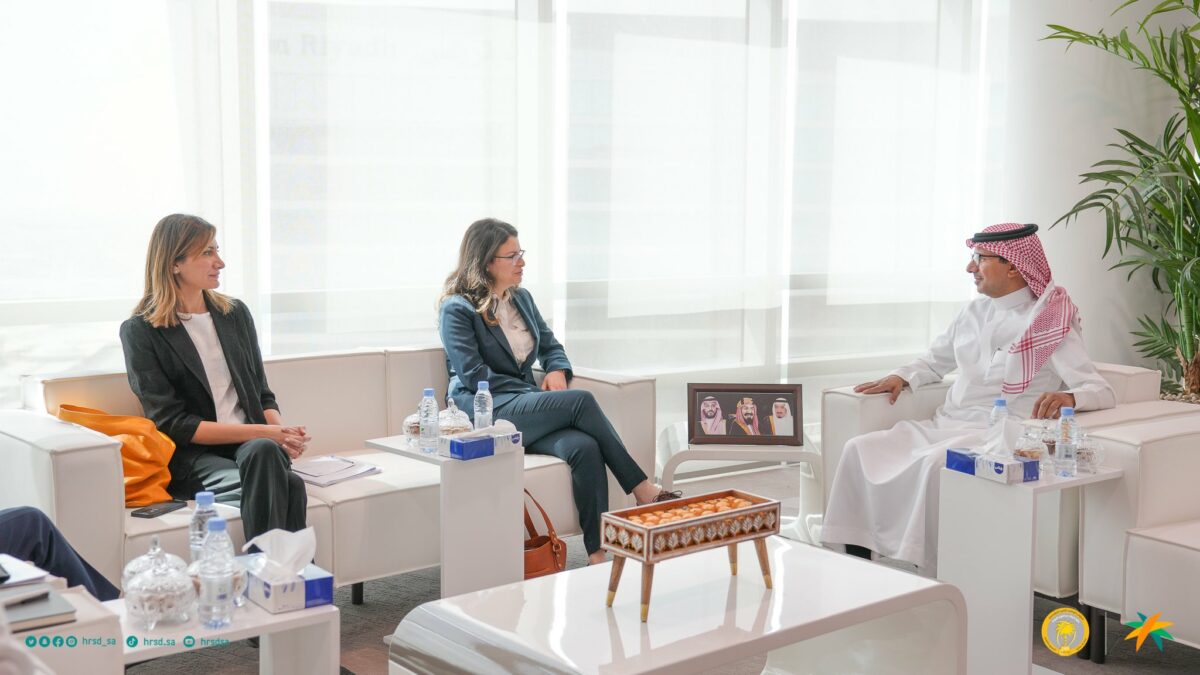DUBAI, UAE — Competition for talent in the GCC is most pronounced between the UAE and Saudi Arabia as the two countries have emerged as leading economies in the region owing to their ambitious growth and development plans, said an expert.
“Both markets have incredible opportunities, and they’re putting a lot of effort into attracting, nurturing, and retaining talent. Indeed, if there is a talent war in the GCC, it is between these two countries,” Chaitanya Peddi, Co-Founder of a Software HR company Darwinbox, told TRENDS.
Known for its modern cities and infrastructure, the UAE has become a magnet for talent worldwide. It has successfully positioned itself as a regional commerce, finance, and innovation hub. Its strategic location, business-friendly policies, and tax incentives have enticed multinational corporations, startups, and entrepreneurs to set up in the country.
Meanwhile, Saudi Arabia has undergone a remarkable transformation under its Vision 2030 initiative. With a focus on diversifying the economy, reducing dependence on oil, and fostering innovation, the country actively seeks to attract a wide range of talents to support its ambitious goals. In addition, the country’s emphasis on sectors such as renewable energy, technology, tourism, and entertainment has opened up vast opportunities for local and international talents.

Peddi said the UAE is still the preferred job market, particularly among the younger generation. Factors like the environmental community, economic diversification, safety, lifestyle, and effective leadership all played a role. As a result, the UAE has surpassed not only Saudi Arabia but also countries such as the United States, Canada, the United Kingdom, and France.
On the other hand, Saudi Arabia is catching up quickly, focusing heavily on sectors such as technology, real estate, tourism, and hospitality on an unprecedented scale. As a result, many new opportunities are emerging in the country now, and they are offering very attractive packages in order to attract the best expat talent.
Incorporating technology in every industry is crucial today. Failure to do so could lead to a loss of competitive edge.
Chaitanya Peddi, Co-Founder, Darwinbox
However, Peddi pointed out one crucial difference between Saudi Arabia and the UAE: the large local population. As a result, Saudi Arabia places equal, if not greater, emphasis on Saudization, which entails upskilling local talent.
So, in comparison to the UAE, where the economy is still heavily reliant on expats and is likely to remain so in the future due to population dynamics, Saudi Arabia is working on upskilling its local talents. If they upskill them properly, they can pretty much get talent from the local population itself. At the same time, they can still attract expats to bridge skill gaps.
Local skill gaps continue to be a significant challenge in the region, Peddi explained.
“Countries must continue to develop talent for the most focused sectors, but this will take time. This means that they should develop a type of education system that is both highly competitive and aligned with industry needs. For example, there is a lot of emphasis today on hospitality and tourism, so countries must develop education systems in these fields. Of course, it does not happen overnight; however, some countries have already begun to identify their priority sectors and begin by fine-tuning their education system,” he said.
Furthermore, most GCC countries are still very government-dominated. As a result, there is an inherent bias among locals to work in the government sector rather than the private sector, which means they will not focus on the skills required by the private sector. So, there is a skill gap, and the private sector relies on expats because they cannot find talent in the local population
“That’s why we still see a lot of focus on attracting and nurturing or developing and retaining expat talent,” Peddi added.
Recruitment trends
As a company specialized in providing HR software technologies, Peddi believes that technology is at the heart of every industry today.
“The problem statement that we are addressing is attracting and hiring the best talents. Thanks to technological advancements, we can now do this more effectively. In the past, the recruitment process was largely manual. For instance, if you were looking for a software engineer, you would have to reach out to people, sift through applications, evaluate proficiency levels, and shortlist candidates,” he said.
“Now, when a candidate applies, he does so through a platform, and his CV is automatically studied, parsed, and compared to the job description. The system then assigns him a score and automatically shortlists him based on that score. As a result, you immediately push only qualified and relevant candidates for the interview. Furthermore, the interviewing process and assessments are now heavily automated.”
Peddi emphasized that incorporating technology in every industry is crucial today. “Failure to do so could lead to a loss of competitive edge,” he said.








